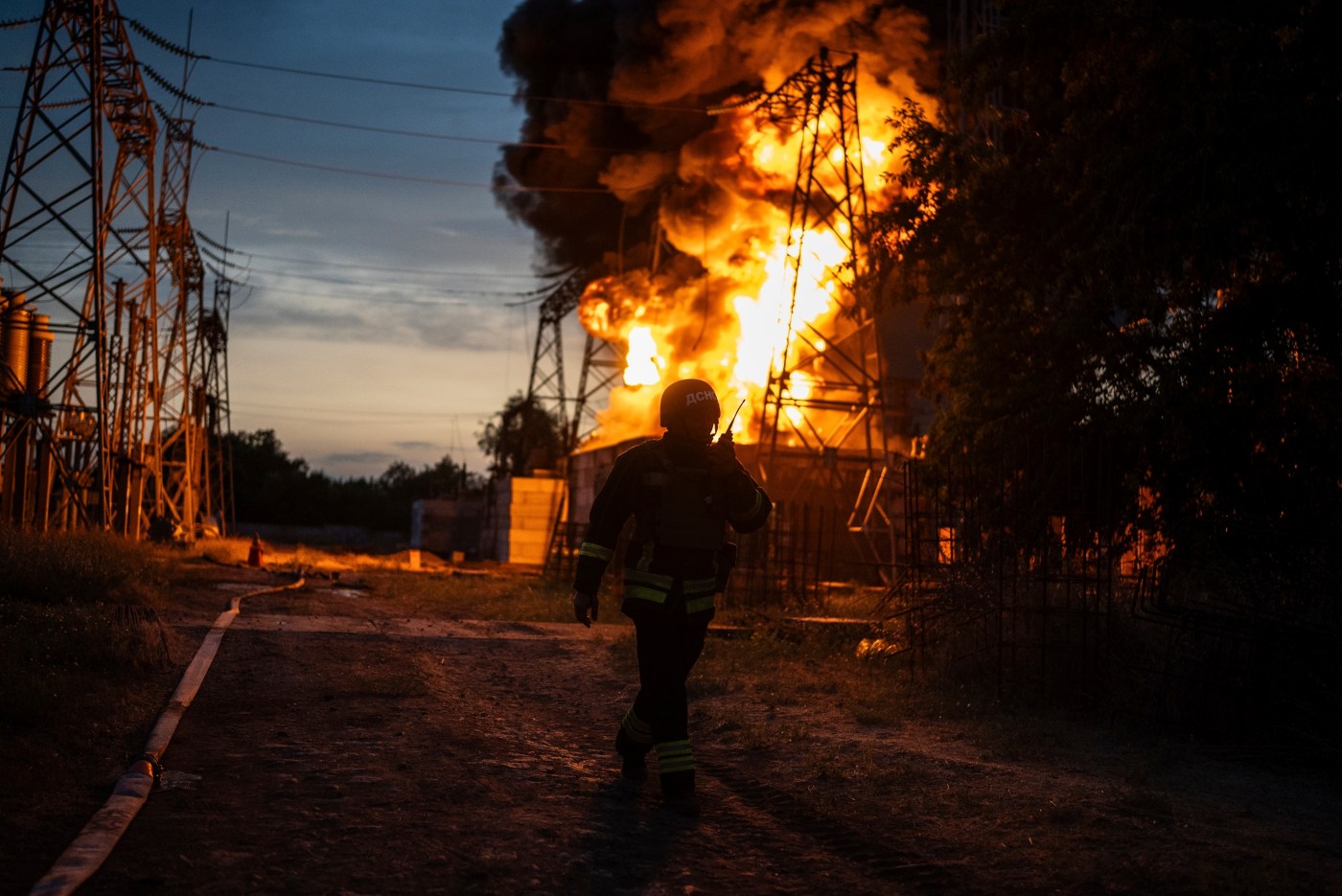
Letters: Which states would we give up to a foreign invader?
What would you give up?
The talking heads constantly ask Ukraine to negotiate a peace with Russia right away. Perhaps we should ask a different question.
If a stronger, bigger enemy attacked the U.S., which states would you abandon to the invader to buy peace? Which states are not worth defending? Which of our fellow citizens should we leave behind for that invader to imprison, torture, or kill?
It is only fair that we should have to answer the same questions that we expect the Ukrainians to answer.
Phyllis Ballata, White Bear Lake
Presidential personas vs. strategic issues
With the merciful passing of political party conventions and the presidential debate and, now, a second assassination attempt … American voters are challenged to soberingly sort “political wheat from political chaff.”
Our sovereign nation’s Judeo-Christian underpinnings define its past, its present and, hopefully, its future. The related values and policies are to be constructively and democratically challenged … in the best interests of all concerned.
Some voters are saying, “I can’t bring myself to vote for either one of the presidential candidates.” The candidates’ contrasting personas and rhetoric distract from voters’ focus upon strategic issues.
Distinct is each voter’s portfolio of values. Let it prevail that voters will cast their ballots based upon America’s many and distressing, strategic issues.
Gene Delaune, New Brighton
Why not Trump?
Two letters in last Sunday’s paper question why I and many people could not be in support of disgraced ex-president Donald Trump. One writer says we should know about “all of his accomplishments.” How about health care? Well he’s been working on it. How about infrastructure? OK, he didn’t do much. Immigration? He took children from their parents and put them in cages. But how about doggies and kitties? Yes. Trump is very pro doggies and kitties.
Another writer wants us to believe that that the Jan. 6th assault on the U.S. Capitol was not that bad. Sir, have you ever heard the quote, “Who are you going to believe? Me? Or your lyin’ eyes?” The writer also implies the Democratic Party is somehow behind the recent Secret Service capture of a suspect on a Trump golf course who it is alleged was there to shoot Mr. Trump.
As to dividing the country, we must all ask ourselves, why has every election judge, lawyer, judge of a district or federal court received death threats when the case is against Mr. Trump? Which brings us to the final point. Disgraced ex-president Trump has been convicted of fraud. He will be defeated in November by 15 million popular votes. The country will forget him faster than the name of the last soccer champion.
Tom Leary, Mendota Heights
Can laws require lawbreaking?
In George Will’s column on Sept. 22, he argued against companies who embrace ESG (Environmental, Social and Governance) goals. He stated that, “The 1940 Investment Advisers Act required advisers to have one overriding concern: their clients’ financial interests. This fiduciary principle was reaffirmed in the 1974 Employee Retirement Income Security Act, which stipulates that those entrusted with investors’ money have a duty to deploy it ‘solely in the interest of’ and ‘for the exclusive purpose of providing benefits to’ the investors.”
First, these acts appear to apply only to financial advisors, not for-profit corporations. If these laws were interpreted to mean that for-profit organizations must maximize profit (for shareholders) with no other considerations, we get an illogical result. There are situations where polluters break the law, but they can make more profit by paying the fines and continuing to pollute, rather than stopping their polluting. The 1940 and 1974 laws would require that the polluters continue to break other laws.
Second, the quotes from the above Acts do not specify whether they refer to short-term or long-term profits. The management of tobacco and oil companies have been able to lie to the public about the safety of their products, thus increasing short-term profits before those managers retire, but leaving behind severe consequences for later managers and the public.
Third, the above wording does not define the “benefits” or limit them to only financial benefits. In the same Sept. 22 issue, economist Edward Lotterman refers to “external costs”, or “costs not incurred by the persons causing them. In this case, the costs are collateral damage to the environment from extracting oil and gas, such as a changing climate that will make people’s lives worse.”
In January 2023, Dr. Withold Henisz of The Wharton School, (which former president Trump claims to have attended), published a short article online titled “ESG: It’s Not Ideology, It’s Economics”. It argues “that investors’ fiduciary responsibilities should include the use of ESG factors in their financial analyses, because ESG data could protect investments by avoiding the financial risks associated with climate change, worker disputes, human rights issues in supply chains, and poor corporate governance and resulting litigation.” The article is well worth reading.
Dale R. Lutz, Maplewood
Agree and disagree
A letter writer last Sunday decried the political climate in our nation and placed the blame on “Soros” and corrupt politicians. I agree wholeheartedly there are way too many politicians who have sold out. Where I disagree is who exactly has sold out. The letter writer refers to Jan. 6 as an unarmed protest/demonstration? People died!
There is one thing (only) in which I can agree with JD Vance — God wants us to be better.
Carole Mulcahy, South St. Paul
Sainted
The Washington County District Court for its thoughtfully devised jury duty system. From the clear mailed communications and online form submission, to the phone-in protocol preventing unnecessary in-person appearances, to the cheerful jurist wranglers, the Washington County District Court demonstrated great respect for jurists’ time and service.
Bonus: Serving on a jury was unexpectedly rewarding. Each member of this particular jury approached the job seriously and made important contributions to the deliberation process, with the jury’s diversity emerging as a major asset in evaluating evidence, interpreting legal terms, and reaching consensus. When the trial was over, the jurists were ushered into a separate court room, where the judge made time to answer all our questions — and we had plenty about the case itself and the often perplexing legal procedures and archaic terminology. About a week later, a handwritten thank-you note arrived from the judge. Handwritten. Classy.
Moral of the story: Dread not the jury summons — at least not in Washington County.
Cindy Spicuzza, Woodbury
Related Articles
St. Paul: Habitat for Humanity build and concert event coming to the Heights development this week
St. Paul man sentenced on gun charge after shooting during carjacking attempt on city’s East Side
Homes by Architects Tour this weekend debuts ‘Small Projects Showcase’ — including a ‘Tiny Tudor’ in St. Paul
Gear up for winter during St. Paul’s Snow Summit
St. Paul native Chenue Her, first Hmong anchorman in U.S., to join Fox 9


